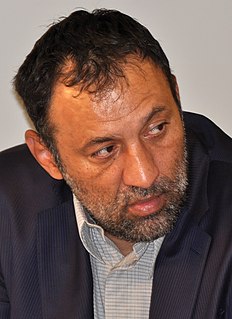A Quote by Philip Yancey
C. S. Lewis observed that almost all crimes of Christian history have come about when religion is confused with politics. Politics, which always runs by the rules of ungrace, allures us to trade away grace for power, a temptation the church has often been unable to resist.
Related Quotes
Of course, in the reality of history, the Machiavellian view which glorifies the principle of violence has been able to dominate.Not the compromising conciliatory politics of humaneness, not the Erasmian, but rather the politics of vested power which firmly exploits every opportunity, politics in the sense of the "Principe," has determined the development of European history ever since.
The religion of art, like the religion of politics, was born from the ruins of Christianity. Art inherited from the old religion the power of consecrating things and endowing them with a sort of eternity; museums are our temples, and the objects displayed in them are beyond history. Politics--or more precisely, Revolution--co-opted the other function of religion: changing human beings and society. Art was an asceticism, a spiritual heroism; Revolution was the construction of a universal church.
I do think you can see, throughout American history, this temptation, and it's both a liberal and a conservative temptation, to take a healthy patriotism a little too far. For liberals the temptation is to say the purpose of politics is to straightforwardly bring the kingdom of God to Earth. For conservatives, I talk about Glenn Beck, the temptation is more apocalyptic and messianic, it's the temptation to say we did have a covenant with God, a literal covenant beginning with the Founding, and we are, like Israel in the Old Testament, falling away from it.
It is grace at the beginning, and grace at the end. So that when you and I come to lie upon our death beds, the one thing that should comfort and help and strengthen us there is the thing that helped us in the beginning. Not what we have been, not what we have done, but the Grace of God in Jesus Christ our Lord. The Christian life starts with grace, it must continue with grace, it ends with grace. Grace wondrous grace. By the grace of God I am what I am. Yet not I, but the Grace of God which was with me.
Power corrupts. If the Church is given too much power, it will become corrupted. So to keep the Church in line with the teachings of Christ, we must make sure that it can never have temporal power. Religion has its place and politics has its own. These two should not be mixed together or the result would be catastrophic.

































